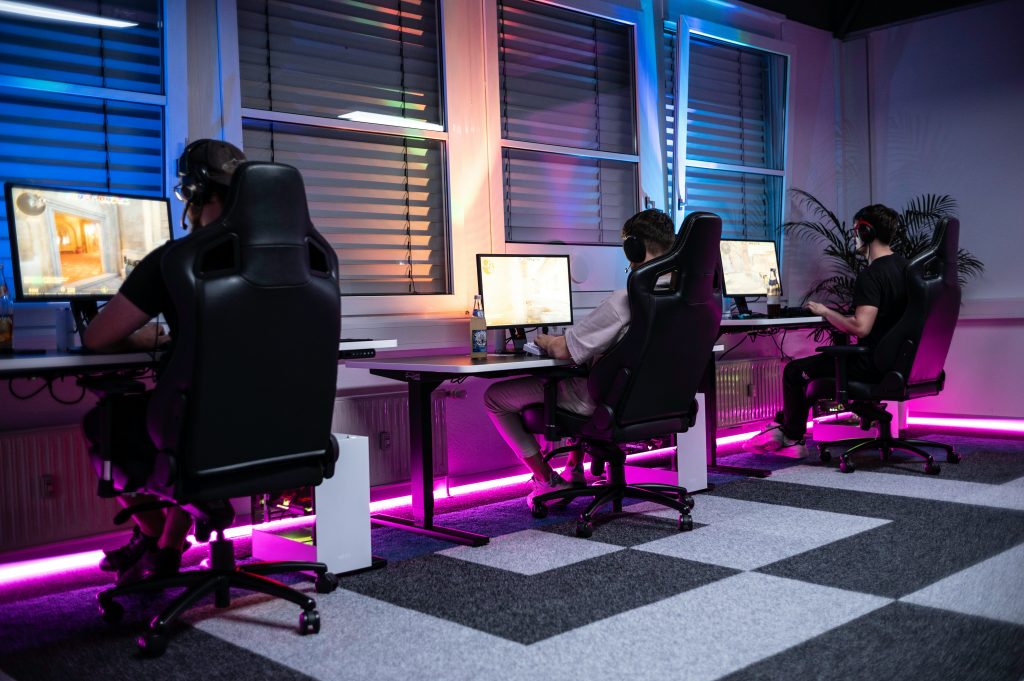Gaming has evolved from a solitary activity into a global social experience. While it has always been an enjoyable pastime, today, it holds much more significance for players around the world. It is a space where friendships are formed, collaborations happen, and communities. The rise of online multiplayer games, streaming platforms, and social media has expanded the scope of gaming, turning it into a shared experience that goes far beyond simply playing a game.
1. Building Connections and Friendships
At its core, gaming has become a way for people to connect with others who share similar interests. Online multiplayer games allow players from different parts of the world to team up, compete, and interact. These digital spaces act as virtual meeting places where friendships can flourish. Whether it’s joining a guild, participating in group missions, or simply chatting between rounds, gaming offers players opportunities to build meaningful relationships.
For many, these connections extend beyond the game itself. It’s not uncommon for players to form lasting friendships that span years. With platforms like Discord and Twitch, gamers are able to stay in touch, discuss their favorite games, or even support each other in non-gaming aspects of life. The bonds that form through gaming are often strong, based on shared experiences and mutual respect.
2. Teamwork and Collaboration
One of the most significant aspects of modern gaming is teamwork. In many games, success is not just about individual skill; it’s about working together with others to achieve a common goal. Whether it’s strategizing in a complex multiplayer game or relying on each other to overcome difficult challenges, gaming fosters collaboration in a way that few other activities can.
The dynamics of working with a team bring out a unique sense of camaraderie. Players learn how to communicate effectively, support each other, and trust their teammates. These teamwork skills often extend to real-life situations, making gaming an avenue for personal growth. In games that require strategic planning or problem-solving, players are constantly learning to adapt and work together, skills that can be beneficial both inside and outside of gaming.
3. Competitive Spirit and Community
The competitive nature of gaming also plays a significant role in its social aspect. Many players find themselves part of a larger community that revolves around a specific game or genre. Esports, in particular, has brought gaming to the forefront as a form of professional competition, where individuals and teams compete for prestige and prizes.
Even for casual players, the competitive environment fosters engagement and motivation. Players gather in forums, social media groups, and streaming platforms to share tips, discuss strategies, and support each other. These communities create a sense of belonging, where players can find their niche, express their passion for a game, and connect with others who have similar goals.
4. Streaming and Content Creation
Another way gaming has become a social experience is through content creation. Platforms like YouTube and Twitch have allowed gamers to become creators, sharing their gaming experiences, commentary, and gameplay with a broad audience. Streaming, in particular, has transformed gaming from a personal hobby into an interactive experience where viewers can participate in real-time.
Streamers often engage with their viewers through live chats, responding to comments, and even taking suggestions from their audience. This interaction blurs the lines between player and spectator, creating a dynamic, shared experience. Fans of streamers can form their own communities, support content creators, and participate in activities that extend beyond just watching a stream, like fan art, memes, and live events.
5. Virtual Hangouts and Social Spaces
Games themselves are also evolving into virtual social spaces. Titles that feature open worlds or sandbox-style gameplay offer players the freedom to meet up, explore, and interact in a shared environment. These virtual worlds can serve as hangout spots where friends can simply relax and chat, much like they would in real life.
In some games, players can engage in activities like dancing, fishing, or simply enjoying the scenery. This type of casual interaction fosters a different kind of social experience, where the game becomes a backdrop for human connection rather than the sole focus. These spaces have become increasingly popular as they offer a unique way for players to socialize and unwind together.
6. Shared Experiences and Storytelling
Another important aspect of gaming as a social experience is the shared journey that players undergo together. Whether it’s completing a difficult mission, solving a puzzle, or overcoming a complex boss, the experiences in games become stories that players can share with others. These shared experiences are often the foundation of conversations within the gaming community, whether online or in person.
Story-driven games also create opportunities for players to connect emotionally. The narratives in these games resonate with many, and discussing the twists and turns of a plot can lead to insightful conversations. The emotional bond that develops through these shared stories can further strengthen relationships between players.
7. Games as Cultural Hubs
Gaming is also becoming a cultural hub where players engage in a variety of social activities. Many games now feature in-game events like concerts, art exhibitions, and social gatherings that reflect real-world cultural trends. This blending of gaming with culture makes it more than just a pastime—it’s a platform where players can express themselves, connect with others, and take part in ongoing conversations around global events, trends, and pop culture.
In-game events and collaborations, such as virtual concerts or limited-time challenges, have made gaming an avenue for creative expression and social interaction. These cultural moments give players a way to be part of something larger than themselves, as they participate in events alongside millions of other players worldwide.
Conclusion
Gaming has grown beyond its origins as a solo activity to become a multifaceted social experience. Through teamwork, competitive play, content creation, and shared narratives, gaming has fostered deeper connections between players than ever before. It’s more than just a form of entertainment; it’s a place where friendships are built, cultures are shared, and communities. As the gaming world continues to evolve, one thing remains clear: gaming is about more than just play—it’s about the connections and experiences we create together.

